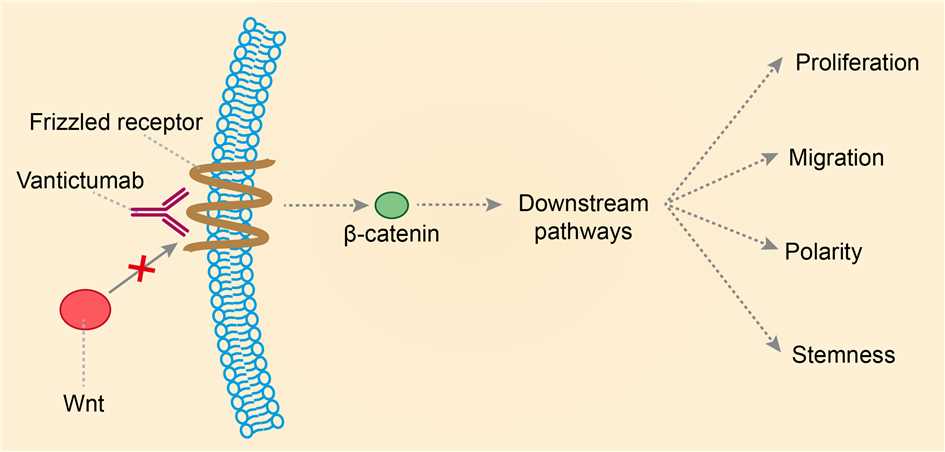Vantictumab Overview
Introduction of Vantictumab
Vantictumab is a human IgG2 monoclonal antibody (mAb) designed for the treatment of cancer. It inhibits Wnt signalling by targeting the frizzled receptors on cancer cells. Phase I trials have been completed for pancreatic cancer, non-small cell lung cancer, and breast cancer.
Mechanism of Action of Vantictumab
Vantictumab directed against the Wnt signaling pathway with potential antineoplastic activity. The Wnt signaling pathways are a group of signal transduction pathways which begin with proteins that pass signals into a cell through cell surface receptors. Wnt signaling was first identified for its role in carcinogenesis, then for its function in embryonic development. Wnt signaling also controls tissue regeneration in adult bone marrow, skin and intestine. The WNT signaling pathway plays an important role in controlling cell fate, self-renewal, and maintenance of normal and cancer stem cells (CSCs). The 19 WNTs are secreted proteins, which are ligands for the Frizzled (FZD) receptors and co-receptors. WNT signaling activates diverse responses including cellular proliferation, migration, polarity, and maintenance of stemness. Activation of canonical WNT signaling results in β-catenin stabilization and translocation to the nucleus, where it promotes expression of WNT target genes, such as LEF1 and AXIN2. This activation of the WNT signaling pathway is found in many human cancers, and the therapeutic utility of WNT inhibitors is under investigation in ongoing clinical trials. Vantictumab blocks binding of WNT ligands to FZD receptors 1, 2, 5, 7, and 8 in the Wnt signaling pathway thereby preventing the activation of the Wnt signaling pathway. This may result in an inhibition of CSC activity and a subsequent inhibition of cancer cell proliferation. The Wnt signaling pathway is dysregulated in many cancer cell types and appears to play a major role in CSC regulation and activity; CSC are tumor initiating cells that are able to self-renew and are responsible for tumor growth and resistance.
 Fig.1 Mechanism of action of Vantictumab
Fig.1 Mechanism of action of Vantictumab
For research use only. Not intended for any clinical use.
This site is protected by reCAPTCHA and the Google Privacy Policy and Terms of Service apply.

